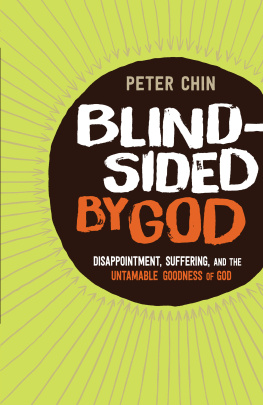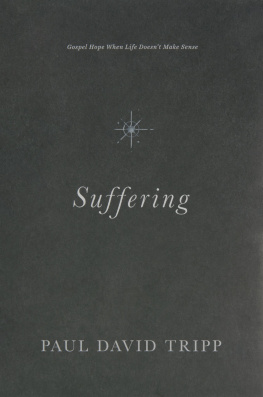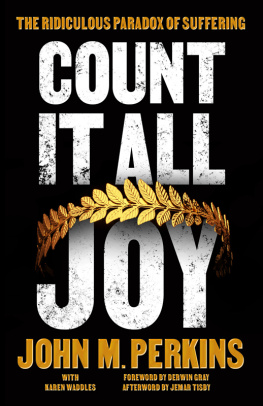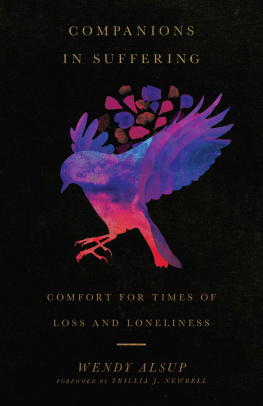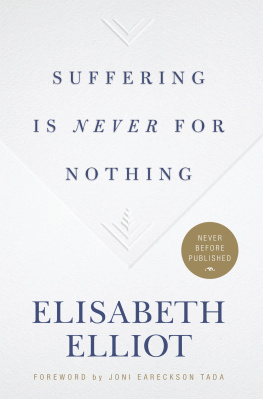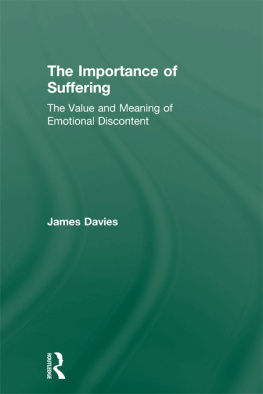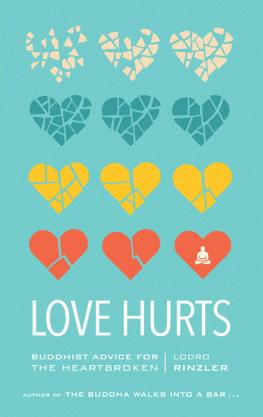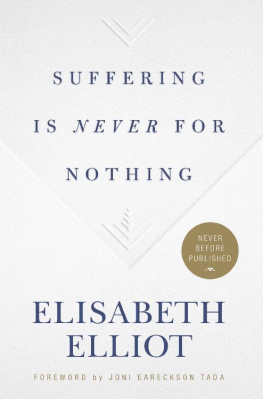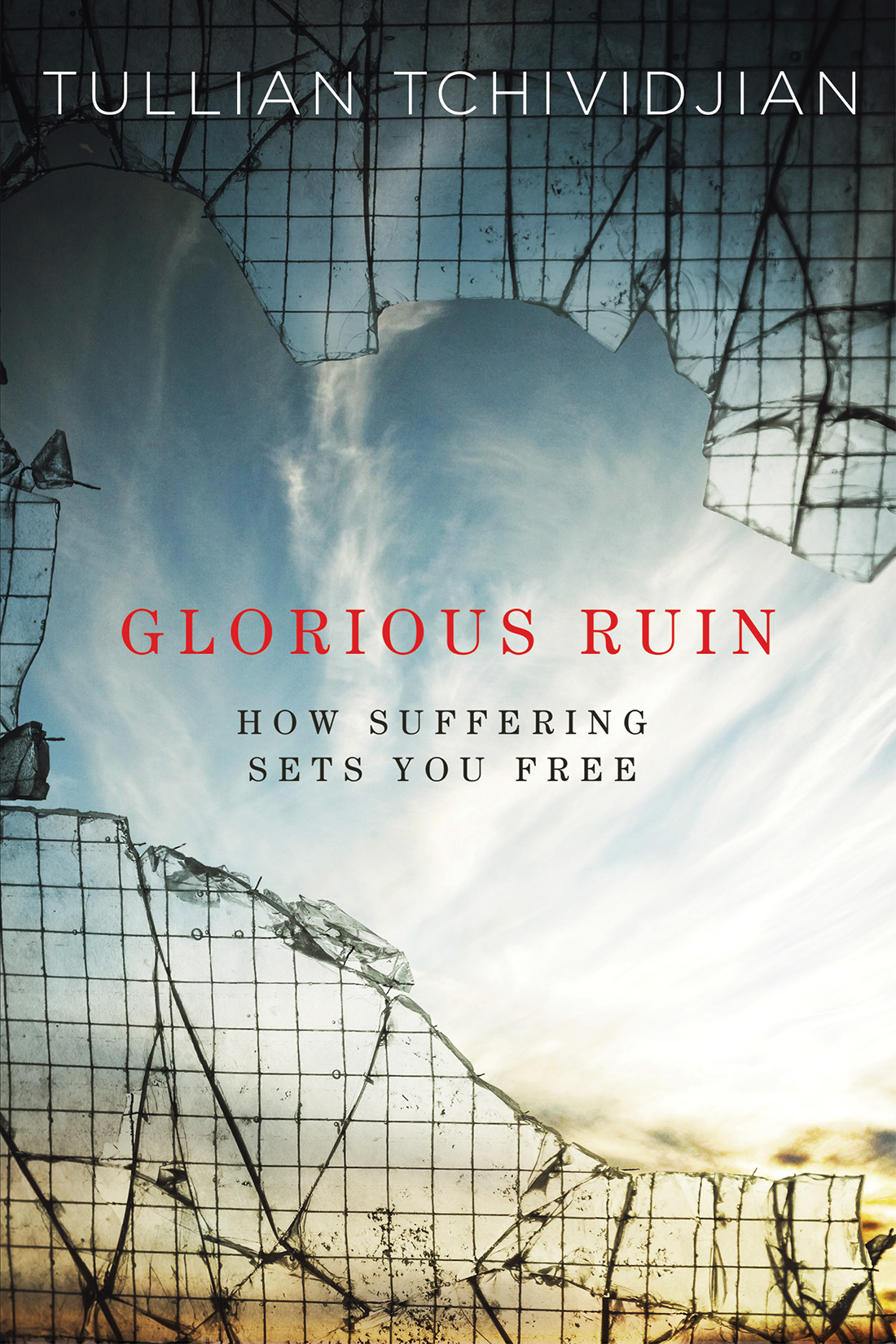
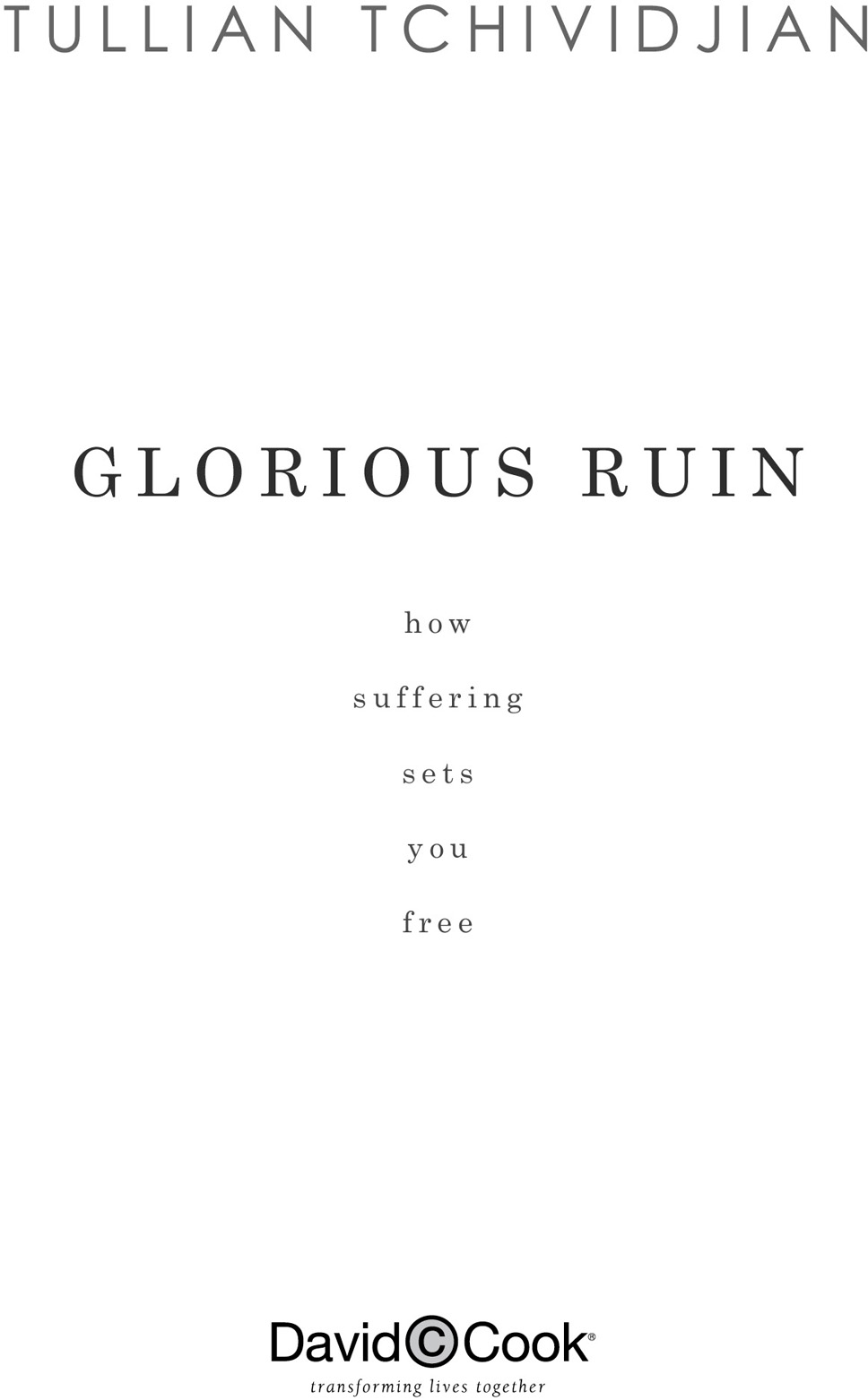
Contents
ACKNOWLEDGMENTS
This book started out as a series of sermons I preached through the book of Job following a very painful season of life. Apparently they struck a chord because they quickly became the most-listened-to sermons Ive ever preached. I heard from people all over the world who told me how God had used these sermons to set them free from the bitterness, anger, and despair that always accompany seasons of ache. Their testimonies alone compelled me to write this book.
But this book is not the sermons. Well, it would be more accurate to say that this book is much, much more than the sermons. And for that, I have a few people I really want to thank.
My good friend Justin Holcomb took the transcriptions and, along with Matt Johnson, provided the structure, the flow, and a working manuscript. Its not an easy thing to go through hundreds of pages of transcribed sermons and structure a book. Justin and his team are second to none.
And then my much-admired friend David Zahl went to work. Davids literary skill, cultural insight, and theological profundity are a lethal combination. He filled in the gaps, provided the polish, and made this book what it is from beginning to end. He is a writer/editor of the highest rank. I thank God for your gifts, David. But even more so for your friendship.
I also want to thank my agent, Sealy Yates, who believes in what God has compelled me to say and wants to do everything he can to help me say it.
And finally, I want to thank all of my friends at David C Cook, especially Alex Field, for your partnership. You guys are amazing. You really are. Your enthusiasm for what I want to say is so refreshing and encouraging. Youre a privilege to work with.
INTRODUCTION
There is a temptation in writing a book about suffering to romanticize ones struggles or, worse, to insensitively rank and compare trials, as if victimhood wer and I think he was on to something. Suffering is suffering, and it is universal. The sincere hope of this short book is to explore how the reality of human suffering, in all its forms, might relate to the truth of Gods liberating grace in a way that is both honest and comforting.
There are only a few guarantees in life, and unfortunately, the R.E.M. song Everybody Hurts articulates one of the most pronounced. We all suffer. Pain is unavoidable, and its not a question of if but when . It can take the form of a sudden catastrophe such as the news of a brain tumor or an oncoming hurricane, or it can be something more ordinary like a strained relationship that never seems to get easier, dragging on in a kind of dull ache. There are physical sources of suffering, of course, and there are emotional sources; sometimes they are one and the same. Sometimes the source is obvious and sometimes it is hidden, such as the slow-boiling anxiety or depression that haunts us even in our happiest moments. In fact, for some of us, pain has become such a pervasive fact of daily life that weve grown numb to it. Others feel it more acutely, doing whatever they can to alleviate the feeling by means of self-medication. Whatever your experience, whatever variety of pain youre most familiar with, the truth remains: each of us suffers in some way, every single day.
Sadly, the ways in which we cope with pain, loss, and tragedy often make the problems worse. Perhaps we roll up our sleeves and get down to the business of fixing things (and people!). Or perhaps we succumb to the can-do, Pollyanna optimism of our surrounding culture, put on a happy face, and try to think positive. If only our churches were immune to such approaches!
Have you ever felt like you couldnt share the details of a difficult situation without someone immediately offering a solution or a spiritual platitude? Have you ever responded that way yourself? The required cheerfulness that characterizes many of our churches produces a suffocating environment of pat, religious answers to the painful, complex questions that riddle the lives of hurting people. We will look at how this culture of mandatory happiness actually promotes dishonesty and more suffering.
Why then do we suffer? Why does God allow so much of it? What, if anything, are we supposed to learn through it? And, most importantly, when will it end? Nothing forces us to confront the deeper questions of life quite like suffering. Nothing makes us face the gnawing emptiness inside more nakedly. Nothing confirms our suspicion more powerfully that this is not how things are supposed to be.
Naturally, philosophers and theologians have wrestled with the implications of suffering throughout the ages. They have asked, as we do, what suffering means, what it says about human beings and reality in general. In my book Jesus + Nothing = Everything , I touched at some length on the everything -ness inside every man and woman that begs to be met, the ravenous appetite that we all seek to fill, often via destructive and self-destructive behavior. In the fourth century, Augustine of Hippo captured this internal void in his Confessions by wisely observing, You have made us for Yourself, and our hearts are restless until they find their rest in You. In other words, this side of heaven, suffering often points to a deeper reality, an indicator of both personal and cosmic discord.
We are meant for something greater. Something far less painful.
Of course, understanding the root and inevitability of pain is rarely enough to alleviate or reduce it. The Nobel Prizewinning social psychologist Daniel Kahneman has built a storied career proving the limits of self-knowledge when it comes to suffering. Even when we know where the hurt is coming from, we tend to respond in one of two ways: we moralize or we minimize .
Moralists interpret misfortune as the karmic result of misbehavior. This for that. You failed to obey God, so He gave your child an illness. Such rule-based economies of punishment and reward may be the default mode of the fallen human heart, but that doesnt make them any less brutal! This does not mean that sin doesnt have consequences. If you blow all of your money on booze, you will likely reap poverty, loneliness, and cirrhosis of the liver. Simple cause and effect. But to conclude that suffering people have somehow heaped up trouble for themselves on the Cosmic Registry and that God is doling out the misery in direct proportion would be more than mistaken; it would be cruel. The humorist Jack Handey perceptively parodied such ideas in his Saturday Night Live featured book Deep Thoughts :
If a kid asks where rain comes from, I think a cute thing to tell him is God is crying. And if he asks why God is crying, another cute thing to tell him is, Probably because of something you did.
The second and equally counterproductive impulse when it comes to suffering is the one that minimizes. Have you ever heard someone try to comfort a grieving friend, saying, Death is a natural part of life? The intention may be compassionate, but the recipient seldom experiences it that way. For them, you have just minimized their pain, implying that death and devastation are morally neutral, that our perceptions are what ultimately create the problem of painthat if we were only able to detach from our emotions, we would experience peace in life, no matter the circumstances. And while there is a certain truth to thatPaul does ask, Death, where is thy sting? (1 Cor. 15:55 KJV )in the moment, it can convey immense insensitivity. Moreover, we minimize suffering when we instrumentalize it. That is, when we subordinate suffering to the result it might achieve, or when we reduce it to a glorified means of self-improvement, as certain daytime talk show hosts might be accused of doing. Christians, of course, use spiritual language to minimize suffering constantly, even their own. The need to exonerate God in the midst of tragedyeven to shove Bible verses in a persons face (regardless of how profound or true they may be)can be just as harmful as saying something actively discouraging, as if God were small enough to be invalidated by our individual suffering.
Next page


